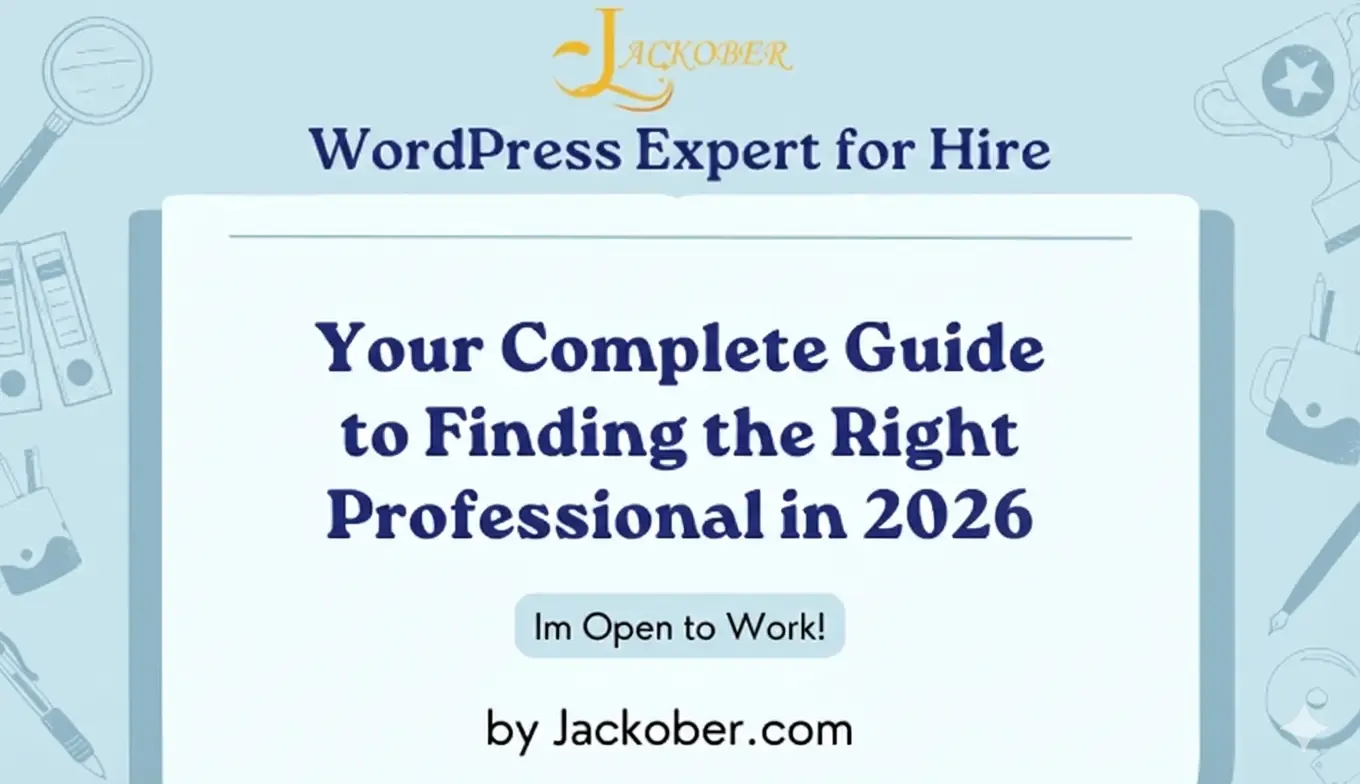
Best WordPress Page Builders in 2025 by Jackober
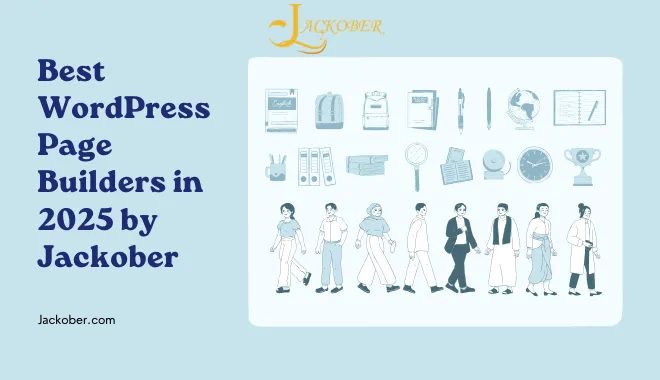
As a WordPress developer and SEO specialist at Jackober, I’ve had the opportunity to work with virtually every page builder on the market. One of the most common questions I receive from clients is: “Which WordPress page builders is the best?”
It’s a reasonable question, but the answer isn’t as straightforward as many would hope. The “best” page builder depends on your specific needs, technical expertise, budget, and project requirements. What works perfectly for a portfolio site might be inadequate for an e-commerce store.
In this comprehensive guide, I’ll break down the top WordPress page builders available in 2025, analyzing their strengths, weaknesses, performance impact, and ideal use cases. By the end, you’ll have the insights needed to choose the right builder for your specific situation.
Understanding Page Builders: The Evolution of WordPress Design
Before diving into specific page builders, it’s worth understanding how these tools fit into the WordPress ecosystem.
WordPress was originally designed as a blogging platform with a relatively simple content editor. As it evolved into a full-fledged content management system, the demand for more sophisticated design capabilities grew. Early WordPress websites required extensive HTML and CSS knowledge to create custom layouts beyond what themes provided.
Page builders emerged to bridge this gap, offering visual design interfaces that allowed users to create complex layouts without coding. Over time, these tools have evolved from simple column and row editors to sophisticated design systems capable of creating virtually any layout imaginable.
With the introduction of the Gutenberg block editor in WordPress 5.0, the line between WordPress’s native capabilities and third-party page builders has blurred. However, dedicated page builders still offer advantages in terms of design flexibility, pre-built templates, and specialized features.
Key Factors to Consider When Choosing a Page Builders
When evaluating page builders, consider these critical factors:
1. Ease of Use vs. Design Flexibility
Some builders prioritize simplicity with limited options, while others offer extensive customization capabilities with steeper learning curves. Consider your technical comfort level and design requirements.
2. Performance Impact
Page builders add code to your site, which can affect loading speed. Some builders are significantly more efficient than others, which is crucial for WordPress Page Speed Optimization.
3. Content Portability
What happens to your content if you switch builders or themes? Some page builders create “shortcode soup” that leaves your content unusable without the builder active, while others produce more standard HTML output.
4. Plugin Compatibility
How well does the page builder work with other plugins you need? Some builders create conflicts with popular plugins or require specific compatibility extensions.
5. Future-Proofing
Is the page builder being actively developed? Does it keep pace with WordPress core updates? Is it moving toward or away from WordPress’s own development direction?
6. Price and Licensing
Consider not just the initial cost but the long-term licensing model. Some builders require annual renewals for updates and support, while others offer lifetime licenses.
7. Support and Community
The quality of documentation, support response times, and size of the user community can significantly impact your experience, especially when troubleshooting issues.
Now, let’s examine the top WordPress page builders available in 2023.
Elementor: The Popular Powerhouse
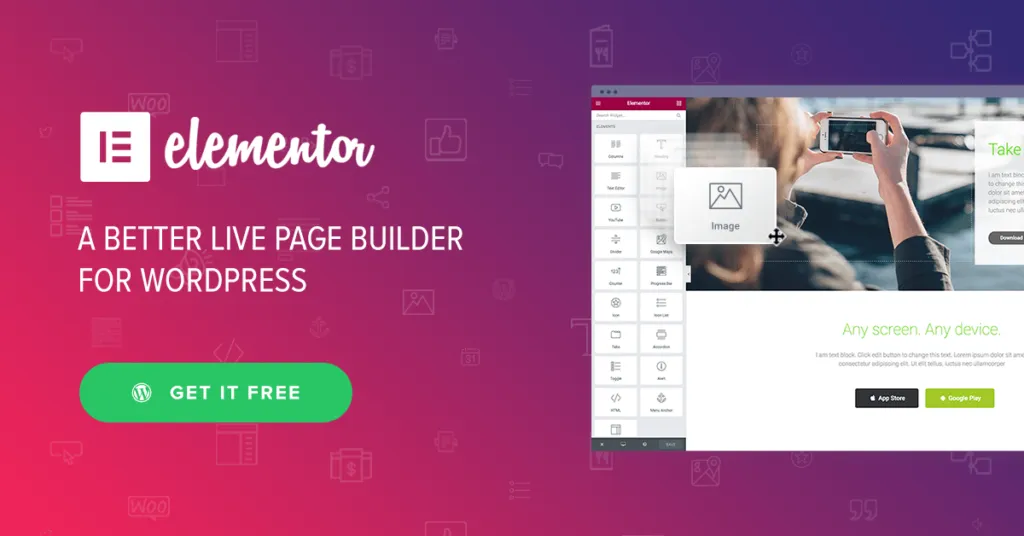
Elementor has grown to become one of the most widely used page builders, with over 5 million active installations.
Key Features
- Live visual editing: True WYSIWYG experience
- Extensive widget library: 90+ design elements in the Pro version
- Theme Builder: Design headers, footers, single posts, archives, and more
- Popup Builder: Create and control popups and their triggers
- WooCommerce Builder: Design custom product pages and checkout experiences
- Responsive design controls: Detailed settings for different device sizes
- Motion Effects: Parallax, animations, and scroll effects
- Template library: 300+ pre-designed page templates and blocks
Pricing
- Elementor Free: Basic features with limited widgets
- Elementor Pro: Starts at 59/yearforasinglesite,upto999/year for 1000 sites
- Cloud Website: New offering that includes hosting starting at $99/year
Performance Considerations
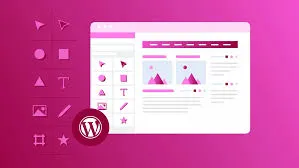
Elementor has made significant improvements to its performance in recent versions, but it still adds considerable weight to pages compared to native Gutenberg. In our testing, Elementor pages typically score 10-15 points lower in Google PageSpeed Insights than equivalent Gutenberg pages.
The team has introduced features like improved asset loading and Experiments (beta features) focused on performance, showing their commitment to addressing this concern.
Best For
Elementor excels for:
- Freelancers and agencies building client sites
- Users who prioritize design flexibility over maximum performance
- WooCommerce stores needing custom product page designs
- Projects requiring complex layouts and interactions
- Users with limited coding knowledge who need advanced design capabilities
Limitations
- Performance impact can be significant on larger pages
- The interface can become overwhelming with all options exposed
- Annual license renewal required for updates and support
- Some advanced features require third-party addons
Beaver Builder: The Reliable Veteran
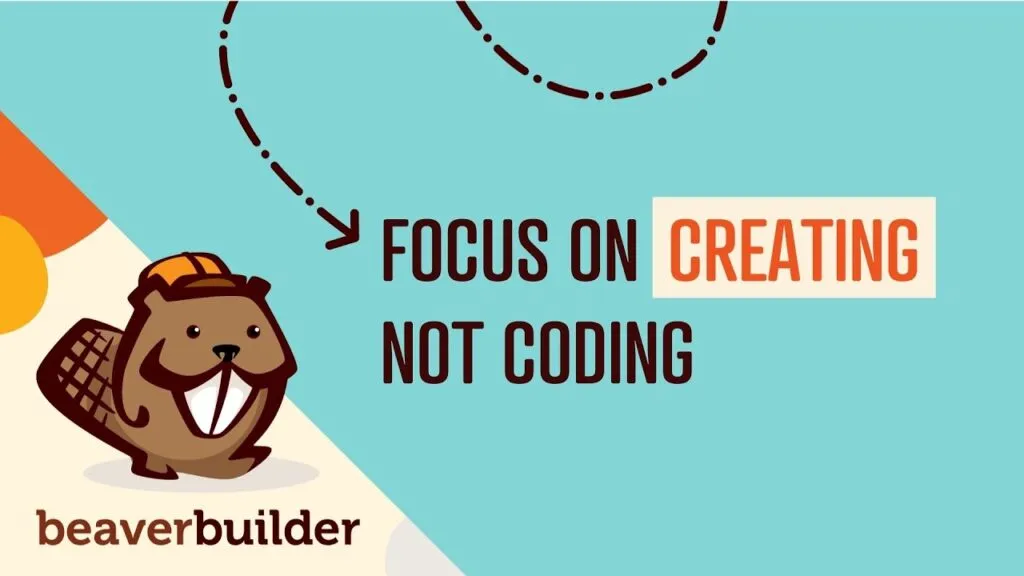
Beaver Builder has earned a reputation for stability and clean code, making it a favorite among developers and agencies.
Key Features
- Drag-and-drop interface: Intuitive and responsive
- Clean code output: Minimal impact on page markup
- White-labeling: Rebrand the builder for client sites (Agency package)
- Theme framework: Optional Beaver Builder theme for full-site design
- Beaver Themer: Add-on for designing theme parts (headers, footers, etc.)
- Multisite compatibility: Works well with WordPress Multisite
- Import/export: Share designs between sites easily
- Role editor: Control which user roles can use the builder
Pricing
- Standard: $99/year for unlimited sites, no theme
- Pro: $199/year adds theme and multisite support
- Agency: $399/year adds white-labeling capabilities
- No free version, but 30-day money-back guarantee
Performance Considerations
Beaver Builder produces cleaner code than many competitors, resulting in better performance. In our testing, Beaver Builder pages typically score only 5-10 points lower than native Gutenberg in PageSpeed Insights, making it one of the more efficient builders.
The team prioritizes code quality and performance over adding flashy new features, which has resulted in a stable, reliable product.
Best For
Beaver Builder excels for:
- Agencies building client sites who need white-labeling
- Developers who value code quality and performance
- Projects requiring consistent, reliable behavior
- Multisite WordPress installations
- Teams with multiple users of varying skill levels
Limitations
- Fewer flashy effects and animations than competitors
- Requires Beaver Themer add-on ($147) for full theme building
- Limited template library compared to Elementor
- Higher learning curve for complete beginners
Divi Builder: The Feature-Rich Option
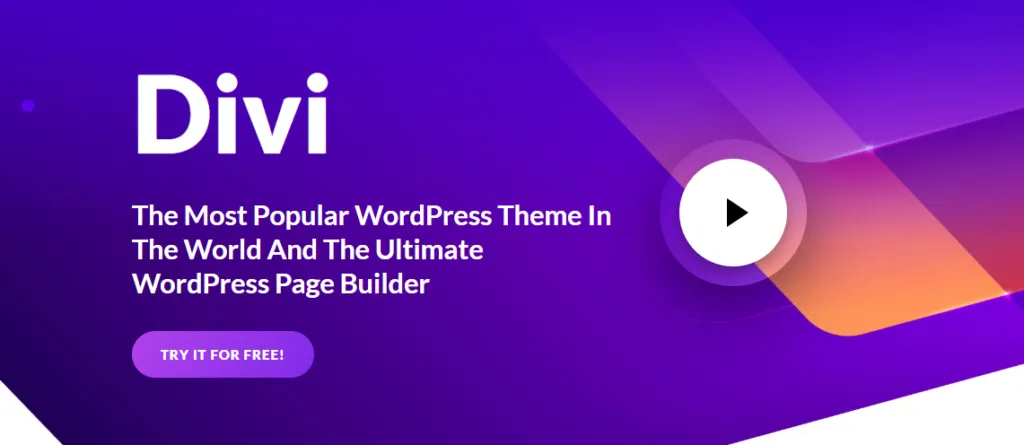
Divi by Elegant Themes offers both a theme and standalone builder with extensive styling options.
Key Features
- Visual builder: Front-end editing experience
- Theme + Builder combo: Integrated design system
- Global elements and styles: Site-wide design controls
- Extensive design options: Detailed styling for every element
- A/B testing: Built-in conversion optimization tools
- Hover options: Detailed control over hover states
- Role editor: Granular permission control
- Huge template library: 2000+ layouts and growing
Pricing
- Yearly Access: $89/year for unlimited sites
- Lifetime Access: $249 one-time payment
- Both include all Elegant Themes products
- No free version available
Performance Considerations
Divi has historically been criticized for its performance impact, but recent versions have made significant improvements. Still, it tends to add more code weight than Beaver Builder or Gutenberg. In our testing, Divi pages typically score 15-20 points lower in PageSpeed Insights than native Gutenberg.
The recent addition of performance options like deferred JavaScript loading helps mitigate some issues, but it remains one of the heavier builders.
Best For
Divi excels for:
- Users who want an all-in-one solution (theme + builder)
- Designers who need extensive styling options
- Marketers using A/B testing for optimization
- Projects requiring extensive design customization
- Users who prefer lifetime licensing options
Limitations
- Steeper performance impact than some competitors
- Can produce complex nested divs in the output
- Interface can feel cluttered with so many options
- Switching away from Divi can be challenging due to shortcodes
Gutenberg: The Native Solution
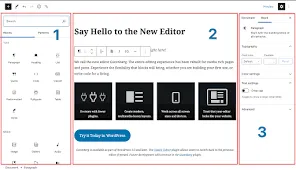
WordPress’s built-in block editor continues to evolve, adding more page-building capabilities with each release.
Key Features
- Native integration: Part of WordPress core
- Block-based editing: Growing library of core blocks
- Block patterns: Pre-designed block arrangements
- Full-site editing: Template editing with compatible themes
- Reusable blocks: Save and reuse content across the site
- Block directory: Install additional blocks from the admin
- Style variations: Global styling with supporting themes
- Zero additional cost: Included with WordPress
Pricing
- Free: Included with WordPress
- Extended functionality: Available through free and premium block plugins
Performance Considerations
As the native WordPress editor, Gutenberg typically offers the best performance of any builder. It produces clean HTML output and loads only the necessary assets. In our performance testing, Gutenberg consistently scores 15-25 points higher in PageSpeed Insights than third-party builders.
The WordPress core team prioritizes performance, and Gutenberg benefits from this focus.
Best For
Gutenberg excels for:
- Performance-focused websites
- Content-heavy sites like blogs and news sites
- Users who want to avoid plugin dependencies
- Projects requiring maximum future compatibility
- Sites using Free WordPress Themes designed for Gutenberg
Limitations
- Still developing advanced layout capabilities
- Fewer pre-built templates than commercial builders
- Less intuitive for complex designs
- Theme builder functionality is still maturing
- May require additional block plugins for specific features
Oxygen Builder: The Developer’s Choice
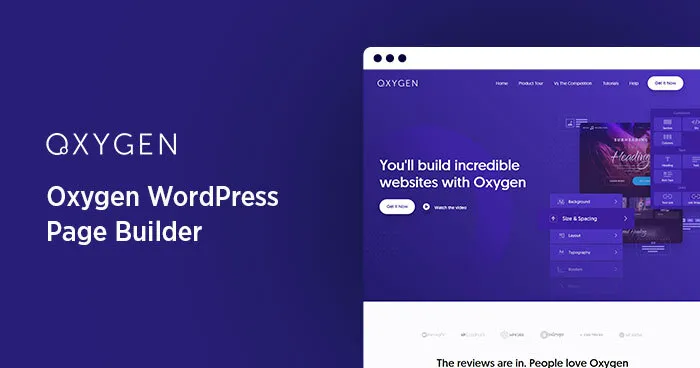
Oxygen takes a different approach, functioning as both a page builder and a theme replacement.
Key Features
- Complete theme replacement: No theme required
- HTML/CSS/JS control: Direct code editing capabilities
- Conditional elements: Display content based on user conditions
- Custom post type builder: Create and manage custom post types
- Advanced query builder: Complex dynamic content creation
- WooCommerce integration: Custom shop and product designs
- Gutenberg integration: Use Gutenberg blocks within Oxygen
- Bricks integration: Use Bricks elements within Oxygen
Pricing
- Basic: $129 one-time payment for unlimited sites
- WooCommerce: $149 one-time payment, adds WooCommerce features
- Agency: $169 one-time payment, adds client billing features
- All plans include lifetime updates
Performance Considerations
Oxygen produces remarkably clean code, resulting in excellent performance. In our testing, Oxygen pages score very close to native Gutenberg in PageSpeed Insights, sometimes within 3-5 points, making it one of the most efficient builders available.
The team’s focus on clean output and performance-oriented features like dynamic data loading contributes to this efficiency.
Best For
Oxygen excels for:
- Developers comfortable with HTML, CSS, and PHP
- Performance-critical websites
- Custom web application interfaces
- Projects requiring advanced dynamic content
- Agencies building many sites who value the lifetime license
Limitations
- Steeper learning curve than other builders
- Not suitable for beginners or non-technical users
- Completely replaces themes, requiring full site design
- Limited template library compared to more mainstream options
- Less intuitive interface for simple tasks
Bricks Builder: The Rising Star
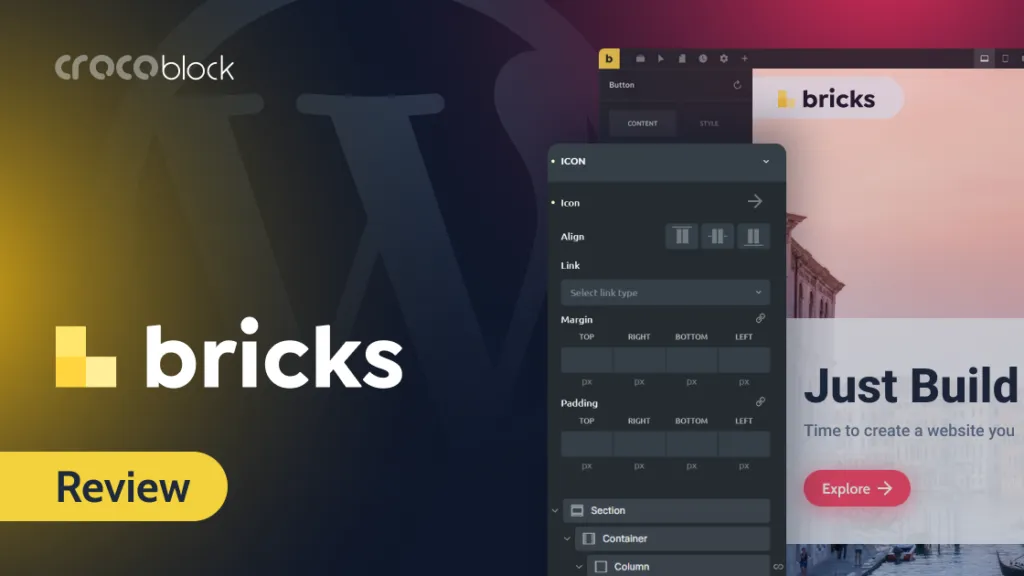
A relatively new entrant, Bricks has quickly gained popularity for its speed and developer-friendly approach.
Key Features
- Performance-focused design: Built for speed from the ground up
- Modern interface: Clean, intuitive UI
- Global elements: Reusable across the site
- Dynamic data: Connect to custom fields and APIs
- Query builder: Create custom content loops
- Form builder: Create and manage forms without plugins
- Conditional logic: Show/hide elements based on conditions
- Custom code: Add custom HTML, CSS, JavaScript
Pricing
- Essential: $99/year for 1 site
- Pro: $199/year for unlimited sites
- Perpetual license available: $399 for lifetime updates on unlimited sites
- No free version available
Performance Considerations
As one of the newest builders, Bricks was designed with modern performance standards in mind. It produces clean code and efficiently loads assets. In our testing, Bricks pages typically score within 5-8 points of native Gutenberg in PageSpeed Insights, making it one of the top performers.
The builder’s architecture prioritizes performance, with features like selective asset loading and minimal DOM output.
Best For
Bricks excels for:
- Performance-conscious developers and designers
- Projects requiring both design flexibility and speed
- Dynamic content-driven websites
- Users comfortable with a slightly more technical approach
- Those who appreciate a clean, modern interface
Limitations
- Newer product with a smaller community
- Fewer third-party add-ons than established builders
- Limited template library compared to Elementor or Divi
- Steeper learning curve for complete beginners
- Less documentation due to younger product age
SeedProd: The Landing Page Specialist

While not a full-site builder, SeedProd deserves mention for its specialized focus on landing pages and coming soon/maintenance modes.
Key Features
- Landing page focus: Optimized for conversion
- Coming soon & maintenance modes: Easily create temporary pages
- Email marketing integration: Connect with major providers
- Subscriber management: Collect and manage email subscribers
- Access controls: Password protection and role-based access
- Custom domain mapping: Use different domains for landing pages
- Analytics integration: Track page performance
- A/B testing capabilities: Test different page versions
Pricing
- Basic: $79/year for 1 site
- Plus: $149/year for 3 sites
- Pro: $239/year for 5 sites
- Elite: $399/year for unlimited sites
Performance Considerations
SeedProd creates relatively lightweight pages focused on conversion. Since it’s specialized for landing pages rather than complex layouts, it tends to produce efficient code. In our testing, SeedProd pages typically score within 8-12 points of native Gutenberg in PageSpeed Insights.
Best For
SeedProd excels for:
- Marketing teams creating landing pages
- Websites needing professional coming soon pages
- Businesses running promotional campaigns
- Sites requiring maintenance mode with lead capture
- Users focused on conversion optimization
Limitations
- Not designed for full website building
- Limited to specific page types
- Fewer general-purpose design elements
- Annual license required for updates
Comparing Builder Performance
Performance is a critical factor when selecting a page builder. Here’s how the major builders compare in our testing:
- Native Gutenberg: Baseline (best performance)
- Oxygen Builder: +3-5 points lower than Gutenberg
- Bricks Builder: +5-8 points lower than Gutenberg
- Beaver Builder: +5-10 points lower than Gutenberg
- Elementor: +10-15 points lower than Gutenberg
- Divi Builder: +15-20 points lower than Gutenberg
These figures represent typical PageSpeed Insights score differences for comparable pages. Individual results may vary based on specific implementations, hosting quality, and other factors affecting WordPress Page Speed Optimization.
Security Considerations for Page Builders
Page builders can introduce security considerations that shouldn’t be overlooked. As with any WordPress plugin, page builders can contain vulnerabilities that might be exploited if not properly maintained.
Best Practices for Page Builder Security
- Keep builders updated: Always run the latest version of your page builder
- Implement proper WordPress security: Follow our Cyber Security guide for WordPress
- Limit editor access: Only give page builder access to trusted users
- Disable unused features: Turn off builder components you don’t use
- Use secure hosting: Ensure your host implements proper security measures
- Enable SSL: Follow our guide on How to add SSL to WordPress for secure connections
Integration with Other WordPress Components
Page builders don’t exist in isolation. Consider how they interact with other essential WordPress components.
E-commerce Compatibility
If you’re running an online store, your page builder needs to work well with your e-commerce platform. WooCommerce compatibility varies significantly between builders:
- Elementor Pro: Excellent WooCommerce integration with dedicated widgets
- Divi: Strong WooCommerce support with product modules
- Beaver Builder: Requires Beaver Themer for full WooCommerce customization
- Oxygen: Powerful but more technical WooCommerce integration
- Bricks: Growing WooCommerce support with dedicated elements
For more on e-commerce considerations, see our guide on Payment Gateways for WordPress.
SEO Plugin Compatibility
Page builders can sometimes conflict with SEO plugins or create challenges for optimization:
- Yoast SEO: Works with all major builders but content analysis may be limited
- Rank Math: Better integration with builders’ content structures
- All in One SEO: Generally compatible but may have limited content analysis
Multilingual Site Compatibility
If you need a multilingual website, consider these compatibility notes:
- WPML: Works with all major builders but may require specific compatibility plugins
- Polylang: Variable compatibility, check for specific builder support
- TranslatePress: Generally good compatibility with visual builders
Making the Right Choice: Decision Framework
With so many options, how do you choose the right page builder for your specific needs? Here’s a framework to guide your decision:
For Beginners with Limited Technical Skills
If you’re new to WordPress and have limited technical knowledge:
- Elementor: Offers the most intuitive interface for beginners
- Divi: Provides extensive documentation and tutorials
- Native Gutenberg: Simplest option if basic layouts suffice
For Performance-Critical Websites
If page speed is your top priority:
- Native Gutenberg: Best performance as part of WordPress core
- Oxygen: Excellent performance with more design flexibility
- Bricks: Strong performance with modern design capabilities
For Agencies and Freelancers
If you’re building sites for clients:
- Beaver Builder: Reliable, stable, with white-labeling options
- Elementor Pro: Extensive features and familiar interface for clients
- Oxygen: Lifetime licensing for unlimited client sites
For E-commerce Websites
If you’re building an online store:
- Elementor Pro: Best WooCommerce integration with dedicated features
- Divi: Strong e-commerce capabilities with conversion optimization
- Oxygen + WooCommerce add-on: Best performance for larger stores
For Content-Heavy Websites
If your site focuses primarily on content:
- Native Gutenberg: Designed specifically for content creation
- Beaver Builder: Clean output preserves content structure
- Bricks: Good balance of content focus and design capability
Future-Proofing Your Choice
WordPress continues to evolve, particularly with the ongoing development of the block editor and full-site editing. Consider these factors for long-term viability:
Block Editor Compatibility
Builders that embrace rather than compete with Gutenberg will likely have better long-term prospects. Look for:
- Integration with Gutenberg blocks
- Adoption of block-based architecture
- Support for full-site editing concepts
Content Portability
What happens if you need to switch builders in the future? Prioritize builders that:
- Generate clean, standard HTML
- Avoid proprietary shortcodes
- Offer export/import capabilities
Development Activity
Choose builders with:
- Regular updates and security patches
- Transparent roadmaps
- Active development communities
- Responsive support teams
The Role of Professional Implementation
While page builders make design more accessible, professional implementation still offers significant advantages:
- Performance optimization: Experts can configure builders for maximum speed
- Advanced customization: Custom code can extend builder capabilities
- Best practices implementation: Avoid common pitfalls and security issues
- Training and documentation: Ensure your team can maintain the site
Consider working with a WordPress Expert for Hire if you need help implementing your chosen page builder optimally.
WordPress Page Builders vs. Alternative Platforms
Some may wonder how WordPress page builders compare to alternative website platforms like Webflow. For a detailed comparison, see our Webflow vs WordPress analysis.
In brief, WordPress page builders offer:
- More flexibility and customization options
- Lower overall costs (especially with lifetime licenses)
- Greater plugin ecosystem for extended functionality
- More control over your website’s infrastructure
Domain and Hosting Considerations
Your choice of page builder may influence your hosting requirements. More resource-intensive builders like Elementor and Divi benefit from higher-quality hosting. For more on the relationship between WordPress and domains, see our guide on Domain Name considerations.
Our Recommendations at Jackober
At Jackober, we’ve implemented hundreds of WordPress websites using various page builders. Based on our experience, here are our current recommendations for different use cases:
For Most Business Websites
We typically recommend Beaver Builder for its reliability, clean code, and balance of features and performance. It’s particularly well-suited for business sites that need stability and professionalism without sacrificing speed.
For Maximum Performance
When performance is the absolute priority, we implement custom Gutenberg blocks or use Oxygen Builder for its exceptional speed and clean output. This approach works well for high-traffic sites where every millisecond counts.
For Design-Focused Projects
For projects where design flexibility is paramount, we often use Elementor Pro, carefully optimized for performance. Its extensive design capabilities and template library make it excellent for visually distinctive websites.
For E-commerce
For online stores, we typically recommend Elementor Pro with WooCommerce for its comprehensive shop building features, or Oxygen for larger stores where performance is critical.
For Rapid Development
When development speed is essential, Bricks Builder has become our go-to option, offering an excellent balance of performance and design flexibility with a modern, efficient workflow.
Conclusion: There Is No “Best” Page Builder
After reviewing all the options, it’s clear that there is no single “best” WordPress page builders for all situations. Each has strengths and weaknesses that make it more or less suitable for specific projects and users.
The right choice depends on your:
- Technical comfort level
- Design requirements
- Performance needs
- Budget constraints
- Long-term plans
At Jackober, we maintain expertise across multiple page builders to select the right tool for each project’s unique requirements. This approach allows us to prioritize what matters most for each client, whether that’s design flexibility, performance, ease of use, or long-term maintainability.
For more detailed guides on WordPress implementation and optimization, explore our Expert Guides section, where we dive deeper into specific aspects of WordPress development and management.
Whichever page builder you choose, remember that the tool is just one component of a successful website. Equal attention should be paid to content quality, user experience, performance optimization, and security to create a truly effective online presence.


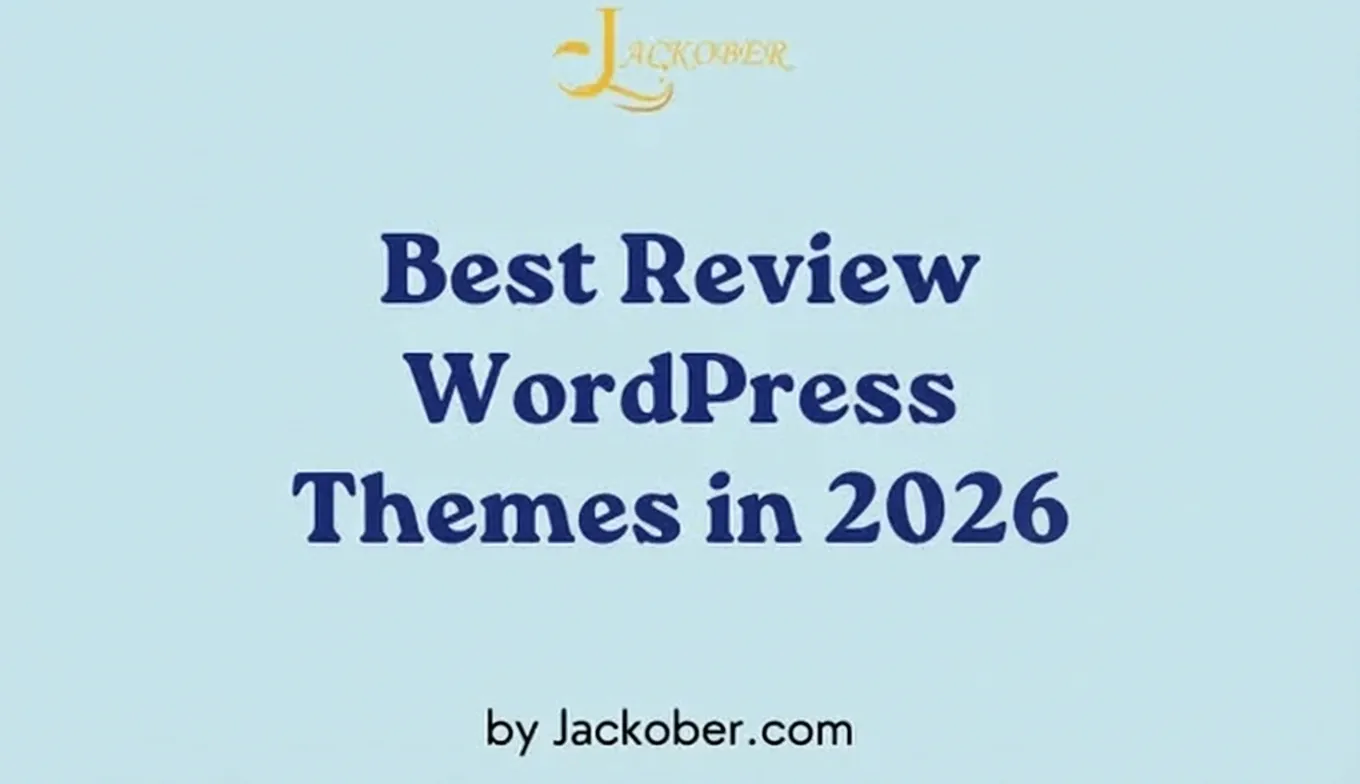

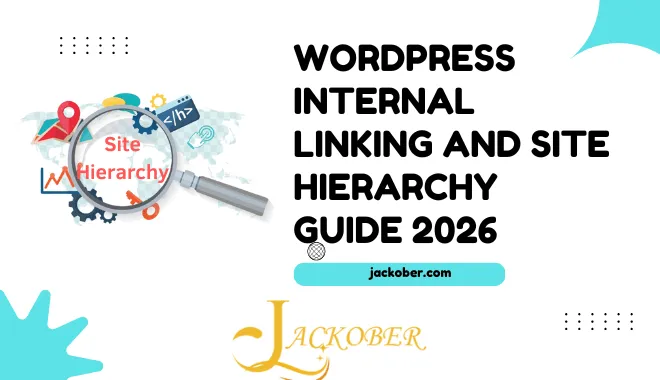
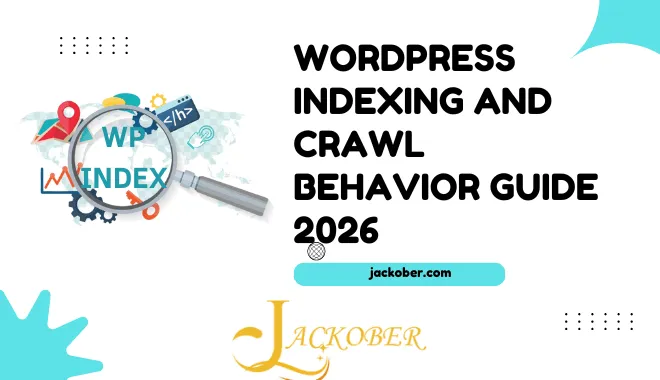
2 thoughts on “Best WordPress Page Builders in 2025 by Jackober”